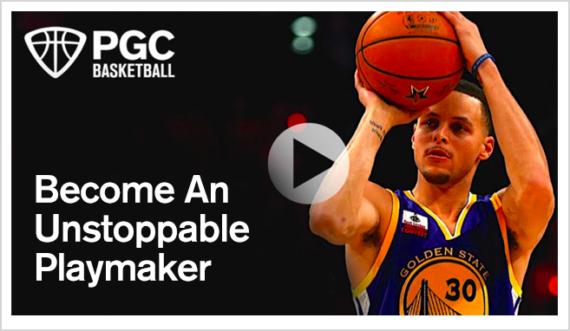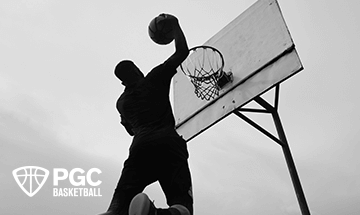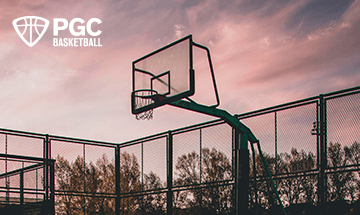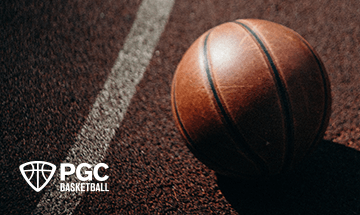How to Get the Ball More on Offense
Basketball players shouldn’t be shy about asking for the ball. This does not mean getting open one time, yelling for the ball, not getting it, and then walking around pouting the next few minutes because someone wouldn’t give you the ball. The “He’s a ball hog” theory is correct a lot less often than the “He just didn’t see you that time” theory; all too often the problem is that you didn’t look very open.
No one should expect to get the ball even half of the times he is open. You should expect something more like one out of 10. Therefore, you should put a definite plan into effect that can help you get the ball more often.
fowards and centers
Forwards and centers who don’t feel they are getting the ball enough need to make special efforts to change that. Number one, tell the guards to get the ball to you, and you will get it right back to them. That’s a good way to begin.
Every basketball player likes knowing he has the possibility of passing the ball, shaking his man and then getting an immediate return pass. So that ought to get the guards wanting to throw you the ball. After you pass back a few times, you can mix in a few fakes and do your own thing, and you should be able to end up with a good mixture of passes and shots along with being generally spotted more often when you are free.
READ MORE: STOP THROWING THE BALL AWAY
However, even if you have guards who are receptive to throwing you the ball, you still need to “train” them. You need to help them learn when you are open. You do that by calling for the ball whenever you get free. You don’t keep yelling and getting disgusted and making faces.
You simply get free, crisply shout the player’s name who has the ball and do that again and again. You ask for the ball. You don’t plead for it. Get free, shout crisply and move away again. If you are willing to be patient and to keep getting free and shouting for the ball, soon your guards will learn to see you when you get free.
Running around quietly makes no sense. You do need to make the fact that you are free clear to the people who can throw you the ball.
To make sure your guards don’t get irritated with you, tell them that you don’t expect them to throw you the ball every time you yell, but that you just want them to know that you are there if they need you or want to pass.

OUR GIFT TO YOU!
We’re excited to give you three free videos! Inside these videos, you’ll discover how to become an Unstoppable Playmaker.
GUARDS
Guards, too, need to ask for the ball, especially in the outlet areas after a rebound, or at the foul line when the defense has converged on a big man who has the ball inside. Again, clap or shout crisply. Make the man immediately aware of where you are, but with the understanding that you don’t expect the ball necessarily to be thrown to you.
Remember, above all, that you will get the ball only a small percentage of the times you are free. Don’t waste your time pouting over times they don’t pass to you. That is like complaining about spilled milk. What’s done is done. Forget about it. Spend your time looking for the next pass, not complaining. Not receiving passes when you are free is a fact of court life. If you don’t understand this, you don’t understand the game.
A player with the ball would…
- First like to score.
- Second, he wants to dribble and not lose the ball.
- Third, he will try to run the team’s offense.
- Finally there is his girlfriend in the stands, his friends, his personal goals, his post-game plans and maybe even his poor vision.
Like it or not, no player is intent on getting you the ball except as a distant priority— especially if you’re in the habit of complaining when you don’t get the ball, you miss it or fail to go after it aggressively when it is thrown to you, or you strut back like a superstar after you do get a pass and score. None of these reactions will help you get the ball more often.
If you want to help alter the passers’ priorities though, try these reactions:
- Compliment a pass all the time.
- Throw the ball back often to the guy who throws it to you, and do it immediately so it sticks in his mind that you often give it right back.
- Move to get open constantly, so players with the ball get in the habit of you being open.
- Yell, but don’t nag, to let them know when you get open.
- Go aggressively to meet the ball when it is thrown to you.
- If a pass is thrown to you and you don’t get it, say you “Should’ve had it” even if you think it was a bad pass.
Don’t do this last one for the sake of nobility. You are free to be your normal, selfish self here. Saying you should’ve had it is solely for the purpose of getting the ball more in the future. Who cares whose fault it was? The play is over, and the coach will have his opinion of who was at fault regardless of what you say to the passer. You say “My fault” to the passer for one reason—so he continues to look for you, feel good about you and want to give you the ball.
Do all these things and you will certainly get the ball more often and likely enjoy playing the game more too.
—Excerpted from the book, “Stuff Good Players Should Know”
Related Articles
What Does It Mean To Be Self-Disciplined?
In the game of basketball, self-discipline is a word that all coaches want players to embody on a daily basis. The word ‘Discipline’ is used for some teams as their standard of excellence, for others it is a pillar that their culture is built upon.
A Champion’s Soul
Muhammad Ali famously said “The fight is won or lost far away from the witnesses, behind the lines, in the gym and out there on the road; long before I dance under these lights.”
Grit
Her research found the trait which consistently linked to success in sports, workforce, academia and business was “grit.”
About PGC
PGC Basketball provides intense, no-nonsense basketball training for players and coaches. Our basketball camps are designed to teach players of all positions to play smart basketball, be coaches on the court, and be leaders in practices, games and in everyday life.
We combine our unique PGC culture with a variety of teaching methods and learning environments to maximize the learning potential of those that attend our sessions. In addition to spending 6-7 hours on the court each day, lessons will be reinforced through classroom sessions and video analysis.
Our goal at PGC is to empower you with the tools to fulfill your basketball dreams, while also assisting you in experiencing the joy of the journey.
To learn more about PGC Basketball, including additional basketball training tips and videos, visit our YouTube Channel or find us on Facebook, Instagram, and Twitter.













Share This Post